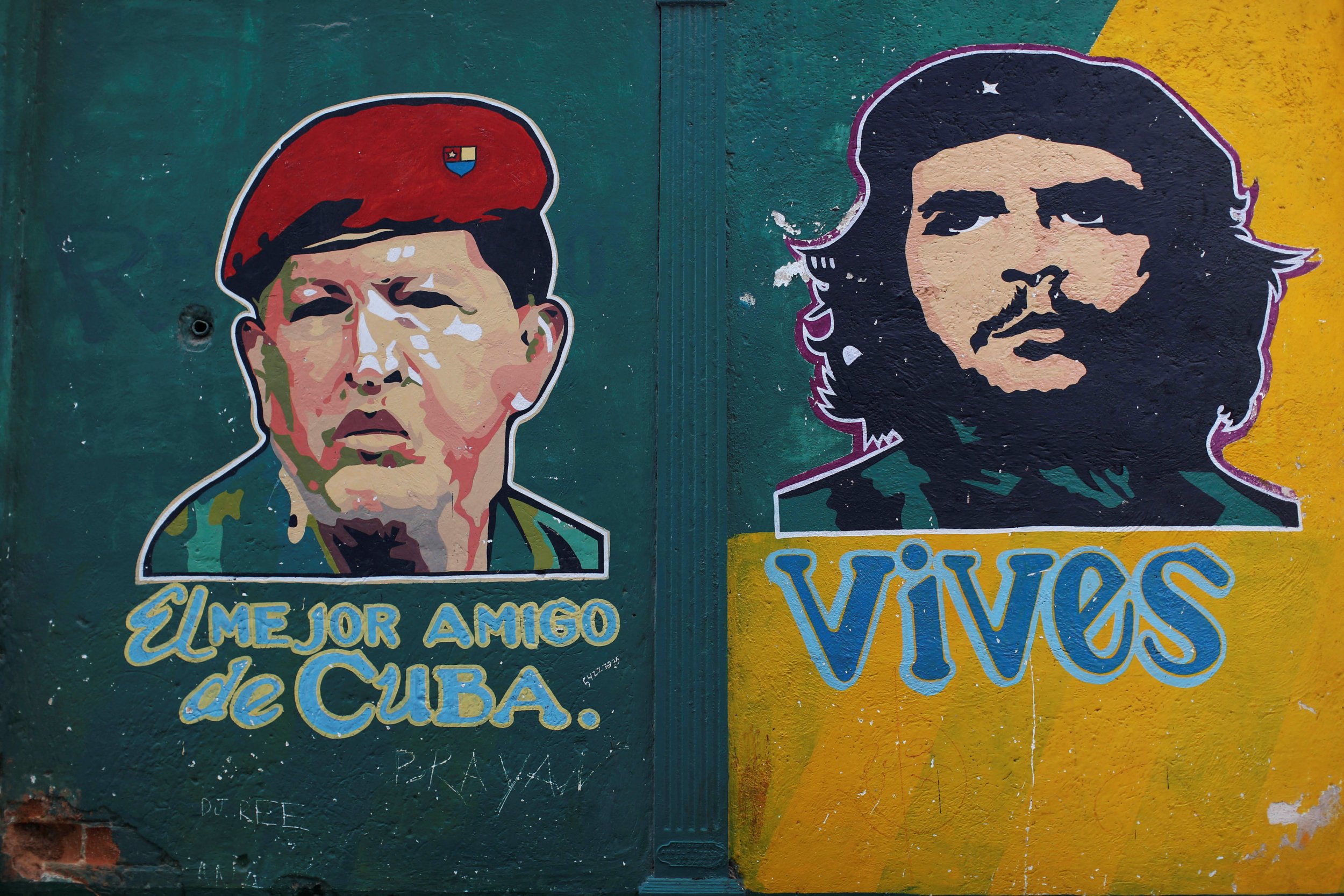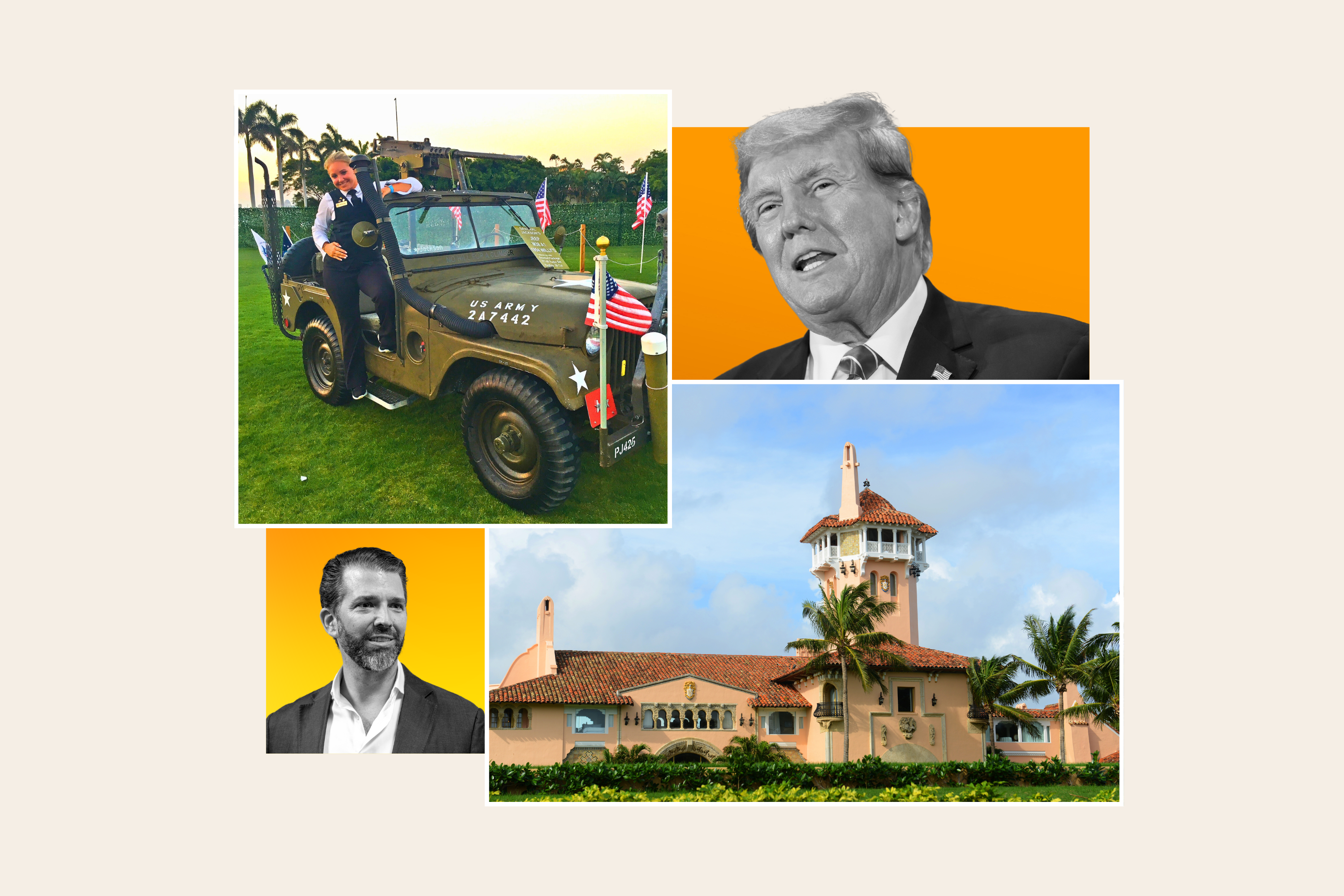
The poor in Cuba are very, very poor, but it does not feel like a country blighted by poverty—not, for example, like India, where I live. People have suffered a repressive political regime, with a virtually closed economy, for more than 50 years, and the youth have to go abroad if they want the sorts of opportunities that are available for aspirational Indians at home.
Practically everyone—including government employees, doctors and university professors—has desperately low levels of pay, but offsetting that in terms of poverty are free health services and education. Some poverty is visible as one travels through rural areas, as is the lack of organized agriculture.
After an all-too-brief eight-day holiday, I came away last month wanting to go again to this welcoming and friendly country. In the towns, many with old squares and streets of distinguished-looking buildings and gaily painted houses, there are cafés and music seemingly everywhere, a sea of color and a calm that comes from a lack of traffic.
I was not, however, visiting as a journalist, and did not have wide-ranging interviews, so these are the quick impressions of a tourist.
"How long will you be here, and where are you going on to?" the U.S. immigration officer asked me when I arrived in Miami for a Kellogg School of Management Innovation Network conference before going on to nearby Havana.
"Five days, and on to Cuba," I replied. "To where?" he asked rather sternly. "Cuba," I repeated, unthinking. He asked me again, rather more threateningly, still holding my passport and completed immigration pass in his hand. "Oh," I said, smiling, "sorry, the Caymans, Grand Cayman" (my onward transit airport). That generated a rather grim condescending smile, and my papers.
Such, it seems, is the ambivalence of officials in Florida to their socialist neighbor that the U.S. boycotted and shunned for more than 50 years till diplomatic relations were restored last July.
Links were severed in 1961, the year that Cuba repelled in just three days a botched CIA-sponsored paramilitary invasion at the Bay of Pigs on the south side of the island. That was followed in 1962 by the Cuban missile crisis, when the risk of a nuclear war between the U.S. and the Soviet Union was averted in a deal that sealed both Cuba's independence and the U.S. blockade.
All of that can lead soft lefties to feel empathy for revolutionaries, celebrating the Bay of Pigs fiasco in a museum by the sea at Girón. One can instinctively criticize a country that could blockade an island for so long, and also condemn the Cuban-Americans who fled, mostly to Florida, when Fidel Castro took over, and whose political influence in Washington, D.C., kept the island isolated.
Another reminder is the mausoleum at Santa Clara of Che Guevara, who, with Castro and others, led revolutionaries in 1959 to victory against General Fulgencio Batista, the country's dictator.
Now Cuba is readying for a second invasion, when direct scheduled flights start from America in September—six U.S. airlines led by American and JetBlue have been approved by Washington for up to 20 flights a day to Havana, plus more to other cities (in addition to current charter flights).
That is being welcomed because of the economic activity it will generate. But older people fear a cultural takeover, especially of the young.
"It's important that kids realize that one nation's trade embargo kept us down all these years, and no one should ever be allowed to forget that," a middle-aged university lecturer told us, avoiding mentioning America with the caution that everyone showed on political subjects.
That led us into a discussion about President Obama's recent visit to Havana, where he faced a tough press conference with President Raúl Castro, the 85-year old younger brother of Fidel, the revolutionary leader and former prime minister and president. Raúl made it clear that there were limits to how far the government would respond to U.S. pressure to soften the current regime.
"Raúl and Fidel are standing up to them, but the risk is that, when they go, the Americans will gobble the place up," said our friend.
'Before It's Spoiled'
People assumed we were going to Cuba "before it gets spoiled." And so we were, just in time before the direct U.S. flights, but not early enough. Even though it was the wet, humid season, there were plenty of other tourists around, as there have been increasingly for a couple decades from Canada, Spain and elsewhere in Europe. Some came while we were there from an American cruise ship that had made its first visit in decades a few weeks earlier.
A few designer and Western brand shops have already opened on the cobbled streets and squares of old Havana with luxury goods that are far beyond the reach of even middle-class professionals, who earn just $4.50 a week.
Chanel staged its annual glittering fashion show with an exclusive invited audience on the grand Paseo del Prado in central Havana two months ago. Adding to the glamour, the Rolling Stones turned up in March for an open event that was more in the Cuban egalitarian traditions of the last half century.
We were, however, in time to stay in Havana's grand old Hotel Santa Isabel before America's Starwood hotel group takes over the management. The Isabel is one of several properties Starwood has said it will be running for one of the military-owned companies that control much of the island's tourism—its Sheraton brand name has just gone up on a modern hotel close to the city's seafront.
Cuba has dozens of stylish old hotels, many in need of varying degrees of refurbishment. Foreign groups such as Meliá from Spain are already there, especially at beach resorts, having been allowed in since the 1990s.
Another indication of growing American links is a bank credit card for Cuba that is being issued by Florida-based Stonegate Bank for U.S. citizens to use for withdrawing cash.
We carried British pounds and a few U.S. dollars that were easily exchanged in banks—my Indian government press card was, amazingly, accepted as proof of identity when I wasn't carrying my passport. Some hotels (we were told only the military-owned ones) accept European credit cards, and there are a few ATM machines.
You Don't Need Coke
So how much will Cuba change? Its attraction is that it mixes being a relic of the past with some modernity, and with splendid beaches as well as the old towns. "Everyone wants to come to Cuba before the Americans change it," said one of our guides. "You don't come here for McDonald's or Coke."
And indeed you don't need to. The local cola brands are fine. The food can be monotonous—endless tuna and cheese sandwiches at lunchtime, helped down maybe with a mojito or rum and cola, and tough beef and pork in the evening. But one can work around that, especially with lamb, chicken and the occasional pasta.
There are some excellent, not-so-expensive restaurants serving a mix of local and international food. I had one of the best rogan josh dishes I've ever had at the Sol y Son courtyard restaurant attached to a stylish old house in the popular tourist town of Trinidad.
There's money to be made from the expected flush of tourism, and the insides of old buildings are being torn out and rebuilt. Old Havana, as the cobbled area of the capital is known, has dozens of building sites, but so far most have kept their imposing exteriors. Brightly colored old Cadillacs, Pontiacs and other bulging iconic American limousines have been refurbished and polished for tourists. At least one limo trip around Havana is a must.
But There Are Problems
Behind the stylish old facades and the hotels and cafés doing increasing business, all is, however, not well. Cuba's is a crippled economy that stumbles on with support from unstable Venezuela and other countries. China has inevitably stepped in and seems to have supplied most of the modern coaches and buses seen on the roads, as well as cars.
There is virtually no manufacturing industry, not even of bicycles, apart from a bright yellow bubble-shaped plastic mini taxi known as CoCo. Agriculture is held back by a lack of mechanization and modern seeds and fertilizers.
The countryside is littered with closed sugar factories, hit by the American trade embargo and inefficient operation. Amazingly for such a literate country, and one with such a rich countryside, exports are limited to tobacco, including the world-famous cigars, and nickel, plus some citrus and sugar that is far below the potential.
There have been some reforms since Raúl Castro took over from Fidel in 2008, opening up areas such as some farms, taxis and cafés to the private sector, but even that is haphazard—we heard that private fruit and vegetable sellers had suddenly disappeared from the streets a few weeks before our visit because that reform had been canceled, apparently because of rising prices.
Stories of heavy and persistent government control even include Airbnb having to register with the government before it could advertise rooms to let. If it hadn't done so, I was told, its internet access would have been blocked and people would have been told not to offer rooms. Now guests' passport details have to be sent to the local immigration office.
People were willing to answer endless questions about the problems and about the new relationship with the U.S. They talked about pay for occupations like teachers and university professors being so appallingly low that many either emigrate or, with increased tourism, waste their talents as tourist guides.
There is a dreadful lack of food, with strict minimal rationing, though the tiny amounts that are available can be bought at reasonable prices in the domestic national peso currency.
Those who are able to lead relatively comfortable lives do so because they have relatives abroad who help with clothes and provisions and also help finance access to the convertible peso (CUC) used by tourists, which is linked to the U.S. dollar and is worth 25 times the local currency.
John Elliott usually writes for Newsweek from New Delhi. His blog is Riding the Elephant, and his book Implosion: India's Tryst With Reality is published by HarperCollins, India.
Uncommon Knowledge
Newsweek is committed to challenging conventional wisdom and finding connections in the search for common ground.
Newsweek is committed to challenging conventional wisdom and finding connections in the search for common ground.
About the writer
To read how Newsweek uses AI as a newsroom tool, Click here.





